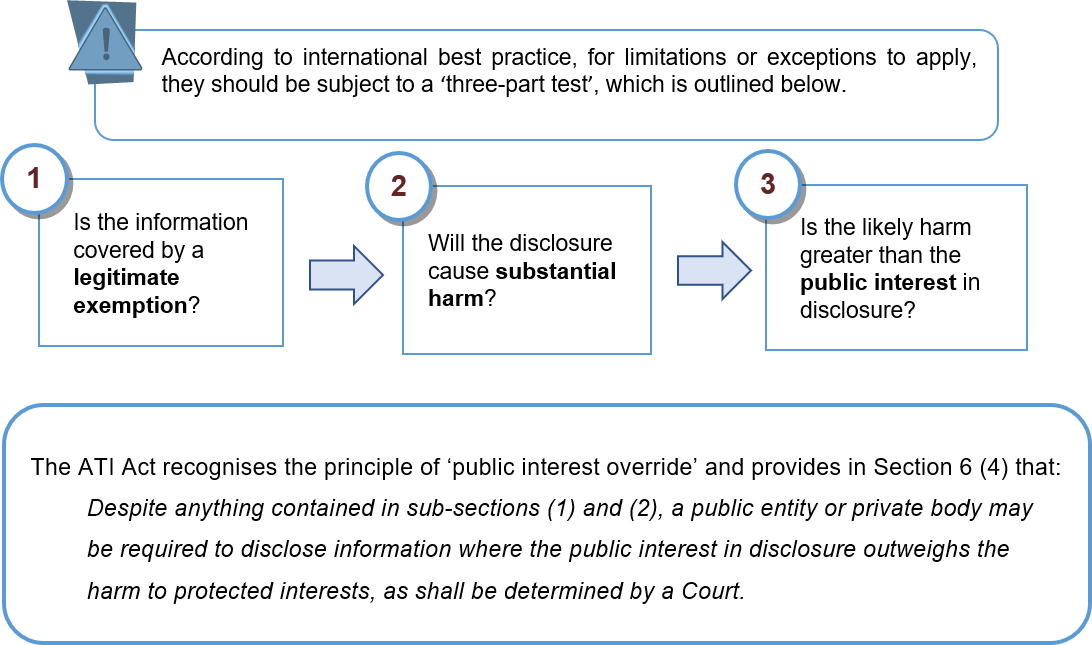|
Limitation |
Meaning |
|
National Security or Sovereignty |
There is some information, relating to a country’s national security, which could genuinely cause harm if released to the public (Tshwane principles on National security and Right to Information). However, common commercial interests relating to defence should be made public to reduce the likelihood of corruption tainting the procurement process. |
|
National Economic Interest |
Disclosure of information about currency or exchange rates, interest rates or taxes, proposals for expenditure or borrowing could in some cases harm the national economy, particularly if released prematurely. However, lower level economic and financial information e.g. contracts and departmental budgets should not be withheld under this exemption. |
|
Relations with Foreign States/Diplomatic Relations |
The relationships between countries can often be sensitive and could damage a country’s own international interests During decision making, there is a level of confidentiality, but once a decision is made, the public has a right to access relevant information so that they can better understand the policy making process. |
|
Law Enforcement and the Judicial Process
|
While investigations are underway, there may be information which needs to be protected. |
|
Cabinet and other Decision-Making Documents |
Cabinet papers, including records of deliberations of Cabinet Secretaries are excluded, but once a decision is made, the reasons for the decisions and the document which were used to make decision should then be disclosed to the public. |

